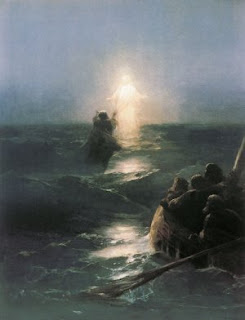"God can achieve His purpose either through the absence of human power
and resources, or abandonment of reliance on them. All through history
God has chosen and used nobodies, because their unusual dependence on
Him made possible the unique display of His power and grace. He chose
and used somebodies only when they renounced dependence on their natural
abilities and resources." (Oswald Chambers)
"For consider your calling, brothers: not many of you were wise according to worldly standards, not many were powerful, not many were of noble birth. But God chose what is foolish in the world to shame the wise; God chose what is weak in the world to shame the strong; God chose what is low and despised in the world, even things that are not, to bring to nothing things that are, so that no human being might boast in the presence of God. He is the source of your life in Christ Jesus, whom God made our wisdom and our righteousness and sanctification and redemption. Therefore, as it is written, "Let the one who boasts, boast in the Lord" (1 Cor 1:26-31).
April 6, 2016
March 23, 2016
More Denial or More Wisdom?
"To drive well, you have to keep your eyes skinned to notice exactly what
it is in front of you. To live wisely, you have to be clear-sighted and
realistic–ruthlessly so–in looking at life as it is. Wisdom will
not go with comforting illusions, false sentiment, or the use of
rose-coloured spectacles. Most of us live in a dream world, with our
heads in the clouds and our feet off the ground; we never see the world,
and our lives in it, as they really are. This deep-seated, sin-bred
unrealism is one reason why there is so little wisdom among us–even the soundest and most orthodox of us. It takes more than sound doctrine to cure us of unrealism. There is, however, one book in Scripture that is expressly designed to turn us into realist: and that is the book of Ecclesiastes." (J.I. Packer, Knowing God: God's Wisdom and Ours, pg. 93)
March 8, 2016
Origin of the Term "Gospel" (i.e. Good News)
"To proclaim the good news of Israel's success in battle was to proclaim God's triumph over God's enemies. Believing credit for the victory belonged to God, the Israelites' proclamation of the good news of victory was, in fact, proclamation about God" (Holman Bible Dictionary).
"The epicenter of the Book of God—the Gospels—is nothing less than a victory narrative. Gospels were a common literary form in the ancient Near East. Whenever a great king won a major victory, he commissioned the writing of a gospel—a vivid retelling of the good news of the vanquished enemy and the victorious king. This glorious good news was told again and again, often from multiple points of views, to exalt the king and encourage his people [hence, Matthew, Mark, Luke and John]" (Robert W. Kellemen).
Another Link: The Gospel of the Kingdom
Subscribe to:
Comments (Atom)


















